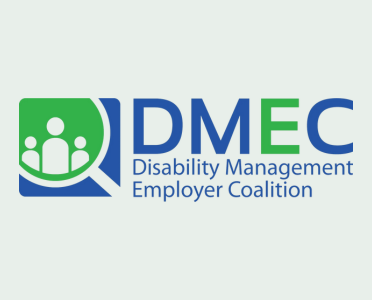We are young… heartache to heartache, we stand.
At times, as we may know from experience, the world of leave and disability can feel like a battlefield. Each statutory leave law with its own job protection – each paid family and medical leave program that comes online – is like a mine in the path of the unwary administrator.
That said, with careful strategy and a keen eye for rulemaking and changes to state-level leave legislation, it’s possible to walk away victorious.
It’s our objective today to provide you with intel on statutory leave and PFML program updates, reminders on key compliance requirements, and takeaways from recent ADA case law. Please use it on your mission to stay compliant!
CASE LAW

Reminder, Employees Have Protection Under the Americans with Disabilities Act Day 1 of Employment
My new employee is in their probationary/training period – do I need to provide them a workplace accommodation? My new employee did not disclose they have a disability on their voluntary self-identification of a disability form – do I need to consider a workplace accommodation they’ve requested? My new employee did not outline the need for a workplace accommodation during the interview process – do I need to provide a reasonable workplace accommodation? Yes, yes, and yes – and the below case shows us why.
The U.S. Equal Employment Opportunity Commission recently sued an employer who told an employee to leave on her first day of work shortly after she requested reasonable accommodations for her visual impairments and later fired her the same day.
Here’s more from the EEOC’s press release:
After the [employee] informed [the employer] about her vision impairments and need for accommodation, the employer questioned why she did not raise these issues in her interview, and immediately terminated her. The employer ignored her later communications asking to remain employed, as well as subsequent overtures from her vocational representative to install and fund the accommodations, the EEOC said.
Such alleged conduct violates the Americans with Disabilities Act (ADA), which prohibits employers from soliciting information pertaining to an applicant’s disability prior to a job offer. The ADA also prohibits an employer from refusing to employ a worker who might need a reasonable accommodation in an attempt to avoid accommodating the employee’s disability.
Are you curious about the outrageous demands this new employee made? Me too. She wanted “Optelec Magnification and Zoomtext software.” This software has various purchase options, from a monthly $85 fee to a one-time purchase price of $800. So, all in, the company, would’ve paid less than $900 to accommodate this individual. I’m not aware of any court that would find this request to be a hardship and further, it’s not typically advisable to argue cost for the purposes of determining hardship – that will generally end up as a “loser” argument.
Employers do not have to provide accommodations that would cause an “undue hardship.” The above is not one of those. The undue hardship analysis involves an individualized assessment of current circumstances, showing that a specific reasonable accommodation would cause significant difficulty or expense.
So, refusing the accommodation altogether is puzzling. My two cents? – it’s looking grim for this employer.
As for the employee’s failure to disclose her disability during the interview, the ADA doesn’t require it. In fact, the ADA prohibits all pre-offer disability-related inquiries and medical examinations, even if job-related. However, employers can ask an individual how they can perform essential job functions. Only after making a conditional job offer can an employer ask about disabilities and conduct medical examinations, as long as it does so for all entering employees in the same job category.
Perhaps there’s a perfectly reasonable excuse for what allegedly happened here. Otherwise, stay tuned for an EEOC press release soon, announcing a settlement.

Accommodation Time Travel. Must Employers Provide Retroactive Workplace Accommodations?
I recently re-watched Napoleon Dynamite. I wonder if Uncle Rico’s time machine would have been an effective solution here? They must’ve had the wrong crystals. I digress.
At least that’s my take away from a recent federal court decision involving a military veteran who suffers from post-traumatic stress disorder (PTSD) and depression due to the death of a fellow soldier during his service.
On the anniversary of the death, the plaintiff was experiencing severe PTSD symptoms. As a result, he called in to work before his start time and left a voicemail for this direct supervisor, stating that he “needed a mental health day.” The plaintiff returned to work the following Monday. Upon returning, he completed and provided a “Request for Leave or Approved Absence” form requesting to use accrued sick leave for his absence. On the form, the plaintiff listed “personal reasons (mental health day)” for his absence.
The plaintiff later learned his supervisor had charged him as “AWOL” and did not grant his leave request. The plaintiff then asked someone else how to use his accrued leave to cover the day off. However, the defendant did not change the AWOL designation.
The plaintiff later filed a lawsuit under the Rehabilitation Act (akin to the Americans with Disabilities Act), claiming his employer had failed to accommodate him. The employer subsequently filed for summary judgment and prevailed.
Why, you ask?
The law requires employers consider changing its ordinary work rules, facilities, terms, and conditions to enable a disabled individual to work, provided that the accommodation enables the employee to perform the job’s essential functions without creating an undue hardship. There’s a long list of potential accommodations; unpaid medical leave is one of them. Reasonable accommodations may also include permitting the use of accrued paid leave or providing additional unpaid leave for necessary treatment.
But here’s the catch: Reasonable accommodations are always prospective, just ask the EEOC. Specifically, the EEOC’s Enforcement Guidance on Reasonable Accommodation makes clear that the ADA is “always prospective” and that an employer is not required to excuse past misconduct even if it is the result of the individual’s disability. The Guidance specifically says “an employer never has to excuse a violation of uniformly applied conduct rule that is job-related and consistent with business necessity.”
The plaintiff’s request for accommodation was for accrued leave to be applied to a day of work he missed before his request was made. Therefore, he did not seek prospective leave, and granting this request would not have required the defendant to change its ordinary work rules, facilities, terms, and conditions to enable the plaintiff to work. Thus, because the plaintiff did not request a valid accommodation, the court granted summary judgment to the employer.
However, exercise some caution here, my fellow accommodation enthusiasts – if this employee had statutory paid sick leave available, the time should be viewed as protected. While the ADA may not apply, other statutory provisions should be considered.
STATE UPDATES
COLORADO
2025 FAMLI Premium Rate Stays the Same
There will be no change to the premium rate for premiums due throughout 2025. The rate will remain at 0.9% of wages. By law, the FAMLI Division Director is required to recalculate the premium rate every year to determine if adjustments need to be made for the following year.
Employer Grievance Process on FAMLI Claims
Employers can now file a grievance online. When an employer needs to dispute a determination regarding an employee’s FAMLI claim, employers should first file a grievance with the Division before filing an appeal. An employer should file a grievance only if they have a good-faith belief, supported by evidence, that the Division has granted FAMLI benefits to a claimant in an amount, duration, or frequency beyond what the claimant is entitled to.
Please check out the Appeals page to learn more about your options when it comes to disputing a decision. Employers can either mail back a grievance form after receiving those instructions or fill out the grievance request form online.
FAMLI Annual Attestation
On an annual basis, employers will be expected to attest that their plan remains compliant with regulations. They’ll also need to (re)confirm contact information and provide an updated surety bond (with required documentation) if using a self-funded plan. The FAMLI Division stated it will send reminders about these requirements and the associated deadlines. We anticipate this attestation will be necessary in November 2024 and employers will receive the request, even if a private plan is offered. Tentatively, the state has communicated attestations will be due 30 days after issuance.
That said, unlike Oregon, private plans in Colorado don’t need to submit for “reapproval” each year – rather, this process will be required every eight years.
Q3 FAMLI Premiums Due October 31
The Quarter 3 (Q3) payment deadline is approaching. Wage reports and premium payment is due by October 31, 2024.
Annual Private Plan Maintenance Fee
Employers who offer a private plan will be subject to an annual private plan maintenance fee which will be “based on costs incurred by the FAMLI Division with regard to each employer’s private plan from the year prior, including costs to audit the plan and administer any appeals related to the plan.”
The timing of when the maintenance fee is due is still to be determined, but we anticipate sometime in early 2025. The employer will receive the request, even if you offer a private plan and employers will be able to pay this fee via online portal, direct mail, or check.
And final reminder for those self-funded in Colorado: be sure to maintain surety bond coverage. The bond amount must be reviewed annually to confirm coverage of a year’s worth of premiums.
Organ Donor Rights
Colorado enacted a new law to protect employees who are or become living organ donors. The law was effective June 3, 2024, and prohibits employers from taking any adverse action against the employee donor during the “prohibited period,” defined as the 30-day period before an employee’s organ donation recovery operation and the 90-day period after an employee has the operation.
The following employment actions are considered “adverse action:”
- demotion;
- reassignment to a lower-ranked position or to a position with a lower level of compensation;
- decrease in compensation;
- denial of promotion;
- reduction in working conditions or perks, privileges, location, or status;
- termination of employment; or
- any other decision for employment purposes that adversely affects an employee that does not apply to other similarly situated employees or is applied differently to an employee who is a living organ donor.
The new law does not require the employer to allow the employee donor to take any unpaid leave that the employee has not already accrued under the employer’s existing policies applicable to similarly situated employees or that is not required under any other applicable law.

MINNESOTA
Quarterly Reporting Requirements Reminder
The first wage detail reports will be due on October 31, 2024, and will be based on wages paid between July 1, 2024, and September 30, 2024. There is more information on wage detail reporting at: Updated pages to submit and adjust wage detail information/Employers – Unemployment Insurance Minnesota (uimn.org).
Every quarter, employers are required to submit a report that details wages paid to their employees. The Paid Leave division will leverage the existing Unemployment Insurance (UI) Online system to collect wage detail reports for the program. If an employer is covered by the UI program, they will be able to submit a single wage detail file for both programs when they pay their UI taxes. In other words, no additional steps are needed from Minnesota employers if all of their employees are covered by UI, as the same account and quarterly wage detail reports will serve Paid Leave.
If an employer is not covered by the Unemployment Insurance program, they will need to set up a “Paid Leave Only” account. Employers will need to provide the first and last name, Social Security number, wages paid, and hours worked for each employee.

NEW YORK
Updated Materials on Workplace Lactation Rights
The New York State Department of Labor has issued revised materials, including an updated mandatory model policy, for the June 19, 2024, effective date for the transition of workplace lactation breaks from unpaid to paid. The revised materials, including an updated mandatory model policy are here: New York State Department of Labor’s Policy on the Rights of Employees to Express Breast Milk in the Workplace.
Since June 7, 2023, employers have been required to issue to all employees a mandatory lactation policy.
The recently enacted 2024 budget converted this unpaid break time for purposes of expressing breast milk into paid time. Accordingly, effective June 19, 2024, employers must provide 30 minutes of paid break time for expressing breast milk for the employee’s nursing child for up to three years following childbirth.
Employers must provide the written policy to each employee upon hire and annually thereafter and to employees returning to work following the birth of a child.

OREGON
Paid Leave Oregon Batch 11 Permanent Administrative Order
Does anyone else feel we’ve had way more than 11 “batches” of these rules? On July 30, 2024, Paid Leave Oregon filed Permanent Administrative Orders for 20 administrative rules relating to appeals, assistance grants, benefits, and equivalent plans with the Secretary of State’s Office. The effective date of these rules was August 1, 2024. We’ve highlighted a few significant updates:
- PLO changed all PLO equivalent plan groups with a September 3, 2023, effective date to an October 1 effective date moving forward. This is to align with the first day of a calendar quarter.
- Clarification provided to acceptable documentation for family care/bonding claims, specifically:
- Birth certificates must be government-issued.
- Documents needed to establish paternity or guardianship must be court-issued.
- If submitting a voluntary acknowledgement of paternity, it must be signed by a witnessing hospital representative within five calendar days of the birth.
- Any document completed prior to an upcoming leave must be signed within 60 calendar days of the expected date of birth.
- Any document submitted for a family care/bonding claim must include (unless issued by a government entity):
- Issuer’s first and last name
- Issuer’s title or specialization
- Issuer’s contact information
- Issuer’s handwritten or electronic signature
- Date the document was signed
- Clarification provided on acceptable documentation for own/family member serious health condition claims. The State will accept FMLA certifications, but own/family member serious health condition claims must complete one of the following:
- Paid Leave Oregon verification of serious health condition form
- Oregon and Federal Family and Medical Leave healthcare provider certification issued by BOLI
- FMLA certifications issued by US DOL or an employer
- A document issued by a healthcare provider
- Any document issued prior to DOL must be signed within 60 days before claimant’s leave start date
- If document does not include full name of the patient or claimant, the following documents must be submitted:
- Legal marriage certificate
- Certified declaration of domestic partnership
- Legal birth certificate
- One or more documents issued by an independent and verifiable third party; must be issued within six months before start of leave
- PLO will offset for garnishment of wages due to restitutions for crime victims.
- Director may secure repayment of overpayment of PLO benefits through the offset of any state tax refund owed to claimant.

RHODE ISLAND
Increase in Length of Temporary Caregiver Insurance Benefits
The governor of Rhode Island has signed into law amendments to the Temporary Caregiver Insurance (TCI) law that will increase the amount of leave benefits available to employees beginning January 1, 2025.
Currently, eligible employees in Rhode Island can take six weeks of leave under TCI to care for a newborn, or newly adopted child, or to care for a family member with a serious health condition. As of January 1, 2025, employees will be entitled to seven weeks of leave, which will increase to eight weeks as of January 1, 2026.
UPCOMING EVENTS

DMEC’s 2025 Absence Plan Design and Practices Benchmarking Survey is currently open! Your participation will allow your organization to gain a clear understanding of how your absence plans and policies compare against companies of similar size and industry.
This survey asks detailed questions about benefit plans and related policies for the 2025 plan year.
The survey will take approximately 25–30 minutes to complete, but you will not need to complete the survey in one sitting. The survey includes the following sections:
- General information
- Short-term disability plans
- Long-term disability plans
- Workers’ compensation plans
- FMLA and other leave policies
- Paid leave plans
- Holiday, PTO, sick, and vacation policies
- Attendance policies
In return for your participation, you will receive a summary of the survey results. DMEC members who complete the survey will also have access to the DMEC AbsenceExemplar™ Dashboard (Limited), which allows members to run custom benchmarking reports by size and industry on a self-service basis.
Additionally, all respondents will be entered into a drawing for a chance to win one of the following prizes:
- One of two $100 gift cards
- One of two microcredential course(s) of your choice
You can access the survey here!
HAVE QUESTIONS FOR OUR TOTAL ABSENCE MANAGEMENT TEAM?
CHECK OUT OUR BLOG




